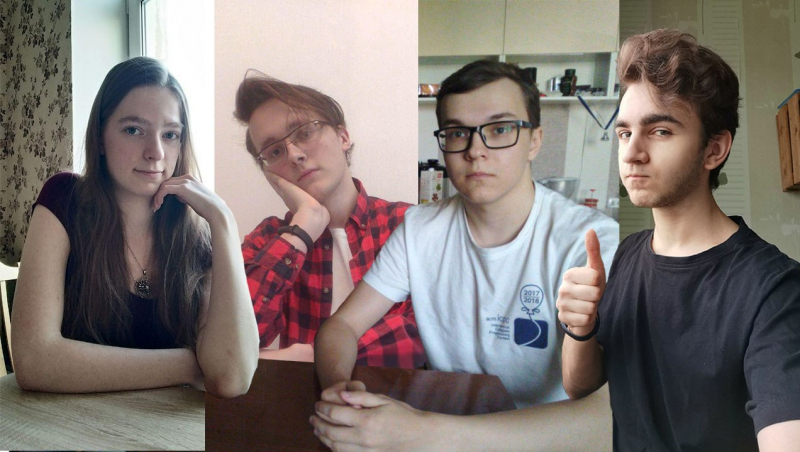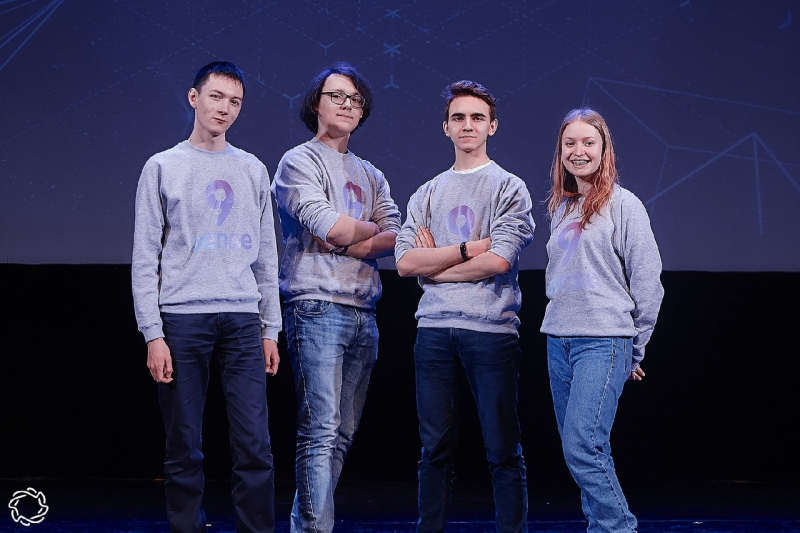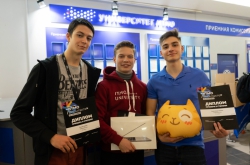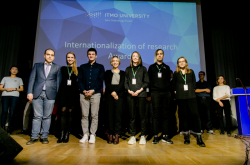What got you interested in the NTI Olympiad?
I’ve already taken part in it once, when I was in school. Back then, I joined the Neurotechnologies track. Our task was to develop a system that would assess the condition of a driver and detect dangerous situations on the road. I was a runner-up, which gave me an advantage when applying to university.
This year, I tried my hand at the contest again, now as a university student. I picked the Smart City track simply because I liked the description: it’s got programming and intelligent systems, which are all things I like.
What was the qualifying stage like? Was it more focused on theoretical or practical knowledge?
The qualifying stage consisted of multiple-choice tests and problems on programming and microcontroller management. Teams of up to four members could participate, but I couldn’t find anyone, so I took part as a one-man team. After the qualifying stage, I joined a team of Baltic State Technical University students, who coincidentally were missing one more member.

What was your task in the final stage?
The main task was to develop a system for the automation and digitization of business management in the smart enterprise format. Our product had to feature the same functions the client company, Medis Group, commissioned in their task description. A week before the finale, we were provided with supplementary materials, which were changed a bit because of the new online format. We had to choose in advance a platform on which we’d develop our solution. The choice was between a desktop, mobile, or web application. We went with the latter since our team already had some experience in web development.
Our team developed an online app with a chatroom for staff where they can exchange data, messages, or submit reports. Administrators in the system are able to grant users different rights and provide access to restricted data. The app includes basic protection features, which was a mandatory requirement for all teams.
We also included telemetry features, meaning that the app displays the current states of various remote devices: their temperature, running time, power, and other critical parameters that users may need to keep track of. You can draw up a work schedule for each device, check whether anything was wrong with it on a given day, and analyze it. We also added mapping features, which allow employees to find out where any specific department is located. There’s also a personal page where users can add their own notes.
What was the final stage like? How did the transition to online affect your work?
Personally, I was, of course, disappointed. To go somewhere and see everything with your own eyes, to hang out with the others – like it was during my previous time – is better than doing things online. Offline, the atmosphere is very work-focused: you come, you work, you don’t get distracted. In self-isolation, you decide your own work hours, and it’s not always easy to follow them.
On the other hand, we were given a full working week – Monday to Friday – to focus on our projects. We had to submit a report every day so as to let the organizing team know what to expect from every team.

Do you think it would be better to work on your own? Or is it more interesting with a team?
I actually love working in a team – it’s boring when you’re alone, and difficult, too. As a team, we split our responsibilities: I worked on the frontend parts of the website, someone else worked on the backend, some analyzed the data we were given. Together, we created a completed product. The other team members were able to meet up and work together, while I kept in touch with them online.
How did the competition benefit you? Are you happy with the results?
The competition taught me that I still don’t know many things. In the lead-up, I spent a week learning HTML and CSS to create templates. Now I’m learning JavaScript, after which I’m going to study the Vue framework, which we used to implement all of our website’s features.
I believe the best prize is the knowledge I acquired and the understanding of where to go next. I would probably participate again, but in another track, to acquire a multi-faceted experience. Then again, it’s a matter of whether I’ll have enough free time for that – but I’m hoping it’ll work out.





